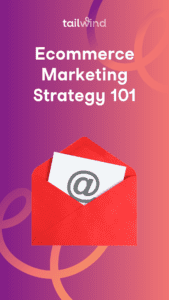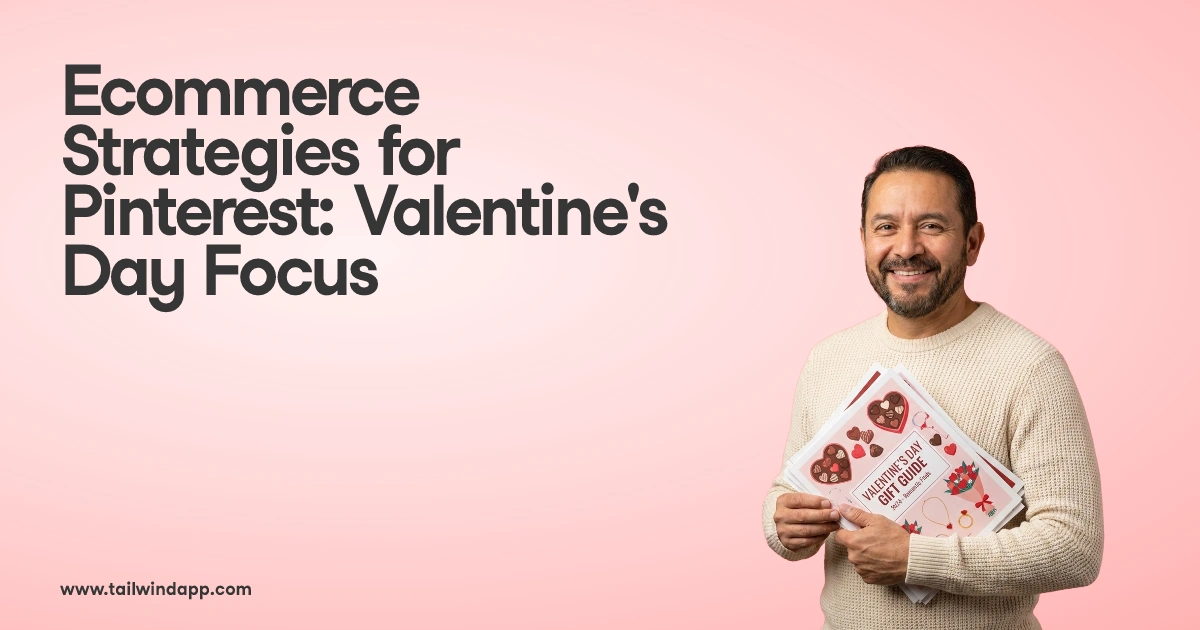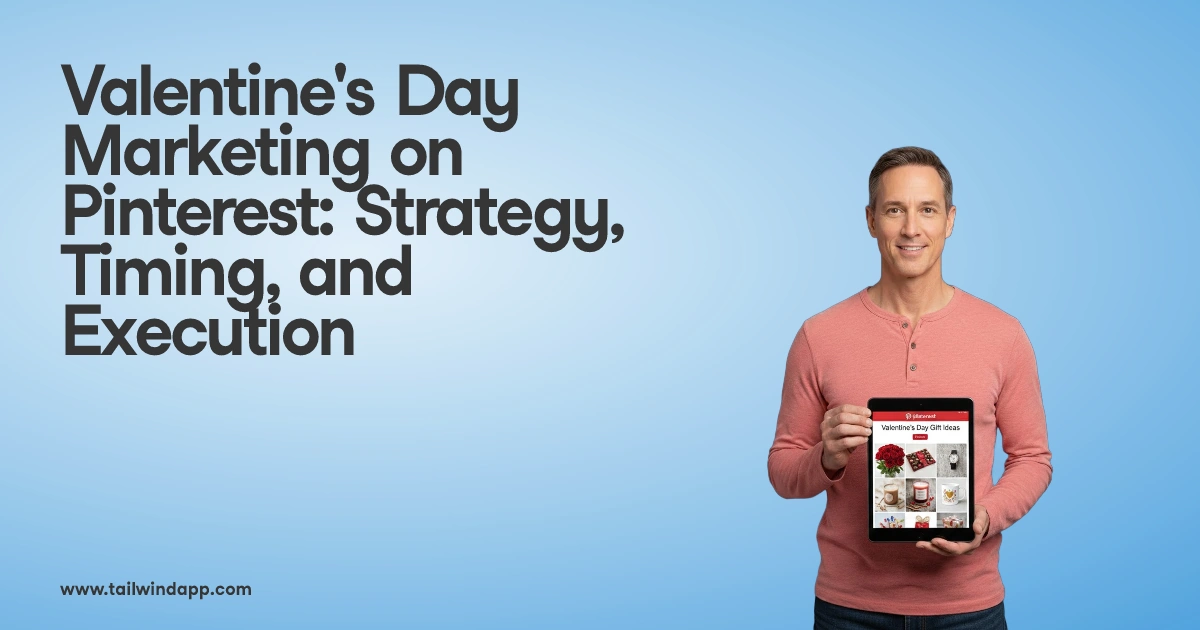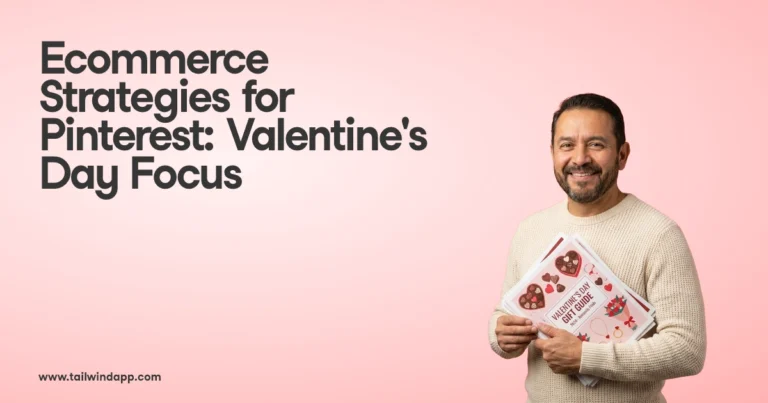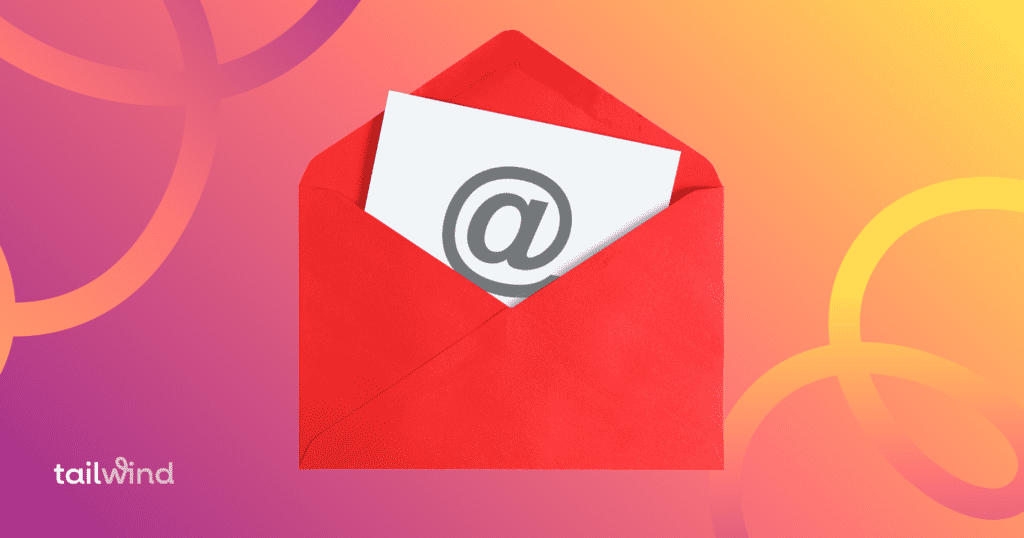
The war for hearts and minds in the vast digital world we inhabit can be a tall task — even for the most experienced digital marketing pros.
It’s a very Darwinian dynamic. After all, you’re competing with millions of other brands and online retailers trying to sell their products and services on potential customers’ screens and mobile devices.
And the thing is, you can’t just approach it by throwing ideas and marketing tactics at the wall to see what sticks. That just won’t cut the mustard in this day and age as an ecommerce business owner.
Above all, you need to have a solid ecommerce marketing strategy to build around and ensure that your brand messaging draws the desired target audience to your online store or ecommerce site.
The Importance of a Good Ecommerce Marketing Strategy
Ecommerce marketing is essential to help potential customers discover your brand, to re-engage with past customers, and to foster strong ties with your existing customers.
And if you’re still on the fence about implementing ecommerce marketing strategies, consider this statistic: 2.14 billion out of the world’s population of 8 billion individuals shop online, meaning one in four people alive today are digital buyers, while 86% of consumers say they will continue buying from online retailers in the post-pandemic era.
Ecommerce marketing allows you to fine-tune your product and service offerings, foster customer loyalty, and optimize the overall customer journey for greater chances to convert.
If you don’t give your ecommerce marketing strategy the attention it needs as an ecommerce business owner, you run the risk of competing with the sharks with one hand tied behind your back.
Instead, make your customer data work for you and harness it to give yourself the best chances to achieve what every ecommerce business wants: to generate as much revenue as possible.
Regardless of which marketing channels you plan to leverage — whether you wish to increase website visitors, boost your search engine rankings, or drive online sales and increase brand awareness on your social media pages — you need to put together an ecommerce marketing plan to help your business thrive.
We’ve put together a list of ecommerce marketing tips and strategies to help boost your overall e-commerce marketing strategy.
Search Engine Optimization (SEO)
The technical mumbo-jumbo around SEO makes it easy for many ecommerce business owners to think that it’s just another “nice-to-have.”
But the reality is way different. SEO is, after all, one of the best ecommerce marketing tactics to boost your revenues because it enables you to funnel in new customers that fit your customer profile. And, as you well know, website traffic and new customers are the lifeblood of every online store.
Here’s why you should implement an SEO strategy to:
- Generate more leads. Search engines are the top drivers of lead generation for websites and are three times more effective than social media is. In other words, simply put, SEO puts your business directly in front of those looking for it, giving you more opportunities to sell.
- Improve the quality of your leads and increase sales. SEO for ecommerce doesn’t end at just driving organic traffic. It also filters your leads and prequalifies them. Doing so, in turn, improves your chances of turning clicks into conversions.
- Reduce marketing outlay. SEO is already proven to have the best long-term ROI of any marketing strategy. Essentially, proper ecommerce SEO will pay for itself many times over. Clicks from paid ads usually come to an end when your campaign does, but well-designed pages will continue to deliver organic traffic as long as it remains evergreen.
Content Marketing
Content marketing is absolutely essential for ecommerce businesses.
Why? Because all you have to foster a trusting, emotional connection with your consumers is through your brand image — and that’s exactly what content marketing for ecommerce is all about. It goes beyond just advertising.
Here are more salient reasons why ecommerce businesses ought to implement content marketing for their respective brands:
- Boost SERP rankings and increase organic traffic to your ecommerce site. Content marketing is one of the best, most value-for-money strategies to drive organic search traffic to your site or online store. By creating engaging, carefully crafted, and value-added content like blog articles, ebooks, and infographics, you’ll find your ecommerce site climbing up the rankings — and staying there.
- Expand brand awareness and build authority. Through consistently providing useful, relevant content, your target audience can learn more about your brand’s value proposition besides its products and services — namely, what your brand actually stands for. Content marketing enables your ecommerce business to build awareness about its brand, distinguish itself from the competition, and increase your chances of being the first brand on potential customers’ minds.
- Extend customer lifetime value (CLTV). Content marketing can help cement the trust and emotional connection customers have with your brand as one they will want to do repeat business with over longer amounts of time — and in doing so, boost customer lifetime value (CLTV).
- Increase order value. Content marketing helps you to build authority and trust. It creates a deeper relationship with the customer, which translates into higher-order value.
If you are wondering what could help you kick-start your content strategy, give a shot at Ghostwriter! The Ghostwriter Blog Wizard can create a blog post in less than 3 minutes.
Social Media Marketing
With the ubiquity and omniscience of social media marketing channels like Pinterest, Facebook, Instagram, Twitter, Snapchat and TikTok, social media marketing is a no-brainer in today’s ecommerce environment.
No other marketing channel takes you directly to larger audiences and appeals to a greater demographic of individuals — and in doing so, increases awareness about your brand. It helps establish your ecommerce brand as a brand people can trust and sends all those new audience members to your store.
Here are more reasons why you should leverage social media marketing for ecommerce:
- Increase customer engagement, community, and loyalty. Social media channels enable ecommerce brands to achieve engagement, loyalty, and community by responding to tags, messages, and comments, which help deepen their relationship.
- Enable personalized, targeted advertising campaigns. E-commerce brands can leverage social media marketing to create highly-targeted demographics and interests, enabling them to broaden their reach toward potential customers who will most likely be interested in their products.
- Effective, economical marketing. The costs involved with running marketing campaigns can set ecommerce brands back quite a lot of time and financial resources. Luckily, social media marketing tends to be more cost-effective than other methods because platforms often offer free accounts that don’t require a significant amount of capital to run.
Email Marketing
Email has become one of the most — if not the most — popular and effective means of engaging potential and existing customers. It’s essential to boosting conversion rate.
Hundreds of billions of emails are sent out daily by all sorts of businesses and organizations, and the results they bring are remarkable as far as developing customer satisfaction and intimacy are concerned — both of which are essential factors to boost customer loyalty and advocacy.
Effective email marketing allows ecommerce brands to:
- Foster deeper customer relationships and increase engagement. Sending regular newsletters, updates, and relevant content to your email list can increase your brand recall in addition to building that ever-so-important emotional connection, trust, and loyalty with your target audience. Through email marketing, you can also create interactive content, personalized content, and product recommendations to create highly-targeted marketing campaigns.
- Gain greater reach to new audiences. Email marketing is an incredibly efficient way to put your message in front of an expansive crowd of potential customers. By diligently constructing a tailored email list and assembling engaging campaigns, you can draw new subscribers and broaden your reach to previously untapped audiences. With the right approach, email marketing can be a powerful tool for every ecommerce business.
- Track key performance indicators. Email marketing allows ecommerce businesses to track campaign progress through metrics such as click-through, conversion, and open rates. This enables you to determine which aspects of your email marketing strategy work and which don’t so you can improve your results by making the necessary tweaks.
Paid Advertising
Once your reach has attained its apex through organic growth, the revenues you generate from your online store become a function of your overall ad spend.
Therefore, it’s no surprise why successful ecommerce businesses eventually increase their ad spend to target every stage of the customer journey over time. This includes display ads, local search ads, Google shopping ads, search ads, and native ads that can be found across websites, social media platforms, and within mobile apps.
Not sold on paid ads? Here are several reasons why you should consider adding ecommerce marketing techniques like pay-per-click (PPC) paid advertising to your arsenal:
- PPC enables cost-efficient ecommerce marketing. PPC enables you to set a cap on your ad spend and scale it up or down depending on its performance and its ability to drive profitable organic traffic to your ecommerce website. After all, you can’t expect to just keep throwing money on ads that just don’t work. PPC helps you optimize your ecommerce marketing budget by making sure that you only pay for ads that give you tangible results.
- Easily track ad effectiveness. The performance of your paid ad campaigns can be easily tracked depending on revenues and conversions. From there, you can accurately determine whether your ad spend is performing well and whether you’re hitting your milestones.
- PPC provides a source of consistent traffic. PPC advertising gives you more bang for your buck while delivering consistent, quick, and tangible results (you can supercharge them by using Tailwind Ads features!).
Influencer Marketing
Social proof is a powerful thing. That’s why influencer marketing on Instagram, Twitter, and TikTok is all the rage — studies show that social media users are more likely to buy a product or service if a recommendation came from an influencer.
Influencer marketing is an effective ecommerce marketing strategy that helps you build brand recognition and trustworthiness in an immediate, substantial manner. It brings in new, loyal customers and taps into their already-loyal existing customer base. Influencers can drive massive amounts of traffic to your site and increase engagement and the likelihood of converting.
Here are more reasons why you should tap into influencer marketing to raise your ecommerce marketing game up several notches:
- Boosts your brand profile and saves time and resources. People find influencers more genuine and entertaining — and therefore more appealing— than traditional advertising methods. Moreover, harnessing influencer marketing allows you to save time and resources on producing ad content and scheduling its publication. Influencers already have a readymade audience and clout that ecommerce brands can leverage on social media immediately.
- Increases credibility, loyalty, and trust. Influencers can help increase their loyalty to your ecommerce brand (and order volume) by sharing reviews about your products and services, thereby lending your brand an air of credibility and trust that can convert new customers from their fanbases and potential customers sitting on the fence while strengthening the resolve of your existing customers.
- Generate more conversions. Influencers have the exceptional ability to direct their followers towards the products or services they endorse or recommend. As a result, it turns content consumers into product buyers. As a result, influencers can easily allure visitors to purchase and convert the lead into sales.
Affiliate Marketing
Affiliate marketing for ecommerce involves using individuals or other third-party businesses to promote your products or services on their respective online platforms. Each time a visitor purchases via an affiliate referral, the affiliate receives a commission.
Affiliate marketers typically use the same digital marketing strategies we’ve outlined earlier in this article such as content marketing, email marketing, paid ads, PPC, and influencer marketing to boost traffic to their respective websites where they talk about your product. 16% of ecommerce sales in the United States and Canada last year, in fact, came from affiliates.
Here are three reasons why affiliate marketing is a crucial ecommerce marketing strategy you should definitely use:
- Ease of tracking affiliate performance. Often, affiliate marketers are given their own URL to use when creating content about your ecommerce business. The link uses cookies, which make it easy to track how well your affiliates are performing (and take action accordingly, if necessary).
- High returns on investment, low capital outlay. Affiliate marketing costs significantly less than the other ecommerce marketing strategies because it doesn’t require massive financial outlay. You don’t have to hire influencers, take out ad space on print and online platforms, or even spend a small fortune on creating content. And, depending on whether you choose to pay per sale instead of pay per click, you only need to pay affiliates when they actually convert. That’s higher ROI all around for you.
- Gives your brand greater social proof. Social proof is a byproduct of affiliate marketing. Besides drawing more eyes to the product and attracting more sales, influencers serving as affiliates can generate engaging, converting user-generated content. Therefore, even if a post doesn’t necessarily convert or get a click-through, you will still have been able to demonstrate to a large audience that individuals trust and support your brand.
Ecommerce Marketing Strategy: The Final Word
A robust ecommerce marketing strategy is mission-critical to achieving your goals as an online business, regardless of which digital marketing channels and ecommerce marketing strategies you wish to implement.
Ultimately, your goal as an ecommerce business is to ensure that your efforts — and your products and services, for that matter — are oriented towards drawing more people to your site.
You only have one shot at making a good first impression that leads to a visit and a sale. That’s why you need to develop a flexible, adaptable, and personalized ecommerce marketing strategy tailored specifically to meet your business requirements. Move decisively and mix up these strategies as necessary, using a variety of marketing approaches across online channels as you optimize them for maximum reach.
And if you feel as though it’s too much work as a small-to-medium-size ecommerce business, think again: all-in-one marketing solutions powered by artificial intelligence such as Tailwind Ghostwriter enable you to run a robust, flexible, and optimized marketing campaign for every strategy you wish to employ without having it cost an arm and a leg.
It’s 2023 and we’re in the thick of the AI revolution — don’t leave money on the table and optimize your marketing strategy with Tailwind.
